
Innovating Interaction: Are We Witnessing AI Evolution?

Revolutionizing Online Content: Unveiling Eight Major Impacts of Artificial Intelligence Chatbots
Regardless of your opinions on AI chatbots, you can’t deny their massive impact on the content industry. Probably every writer has heard about them. Global tech giants made headlines by releasing AI-driven chatbots, e.g., ChatGPT, Bing Chat, and Google Bard.
Despite AI being innovative, it isn’t always beneficial. Here are some ways AI chatbots have been positive and negative for professionals in the content industry.
1. AI Minimizes Grammatical Errors
AI chatbots have come a long way from producing incoherent text. Nowadays, advanced LLMs produce grammatically correct outputs on any topic under the sun. You could even ask them to adopt a specific tone.
Apart from producing grammatically correct text, chatbots assist with edits and corrections. Many professionals use them as free alternatives to grammar checkers. LLMs can spot grammatical errors, text inconsistencies, run-on sentences, misspelled words, and awkward phrasing.
The below image shows ChatGPT suggesting text corrections.
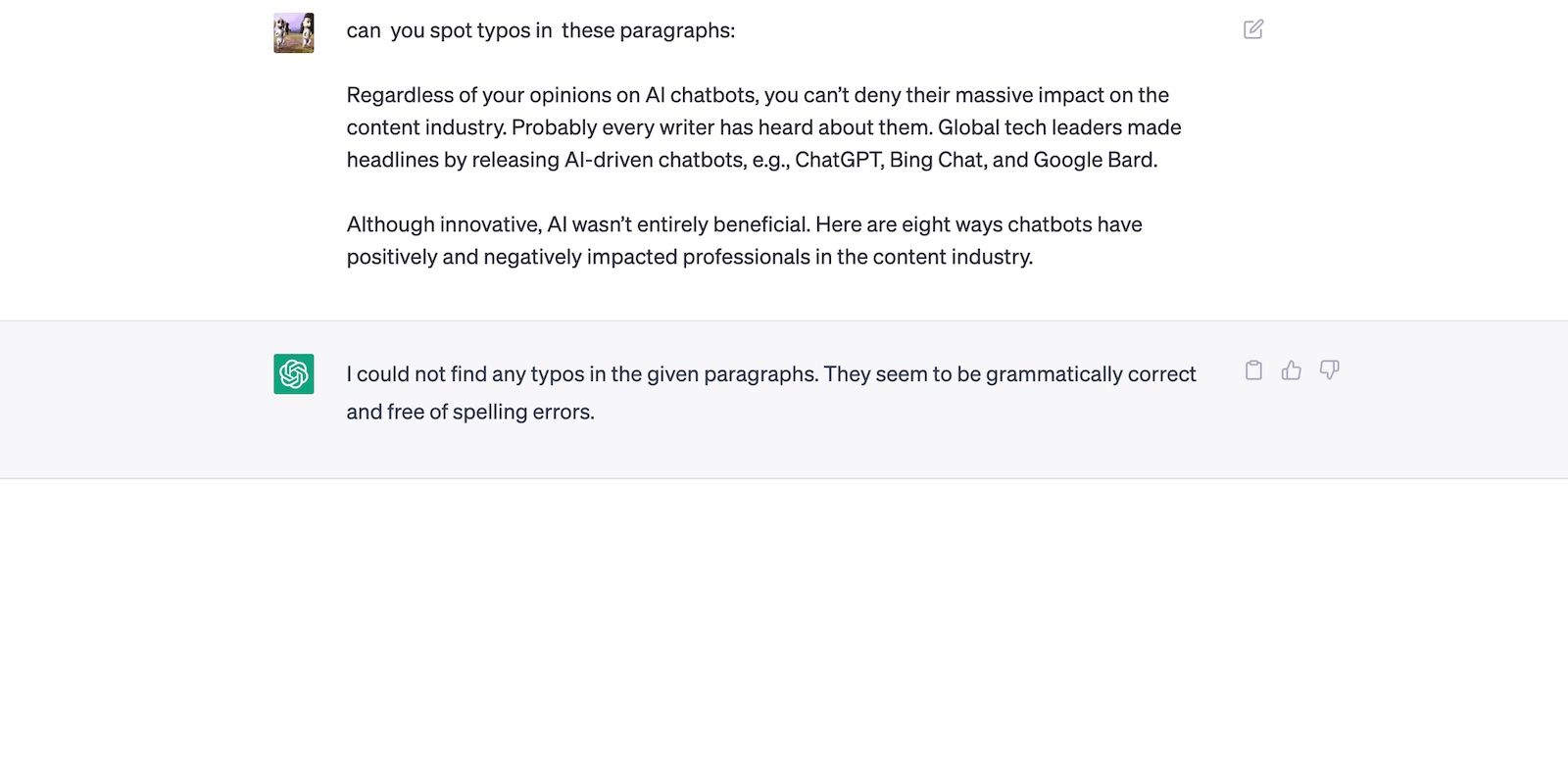
Bing Chat provides more accurate results by referencing other grammar checkers in real-time.
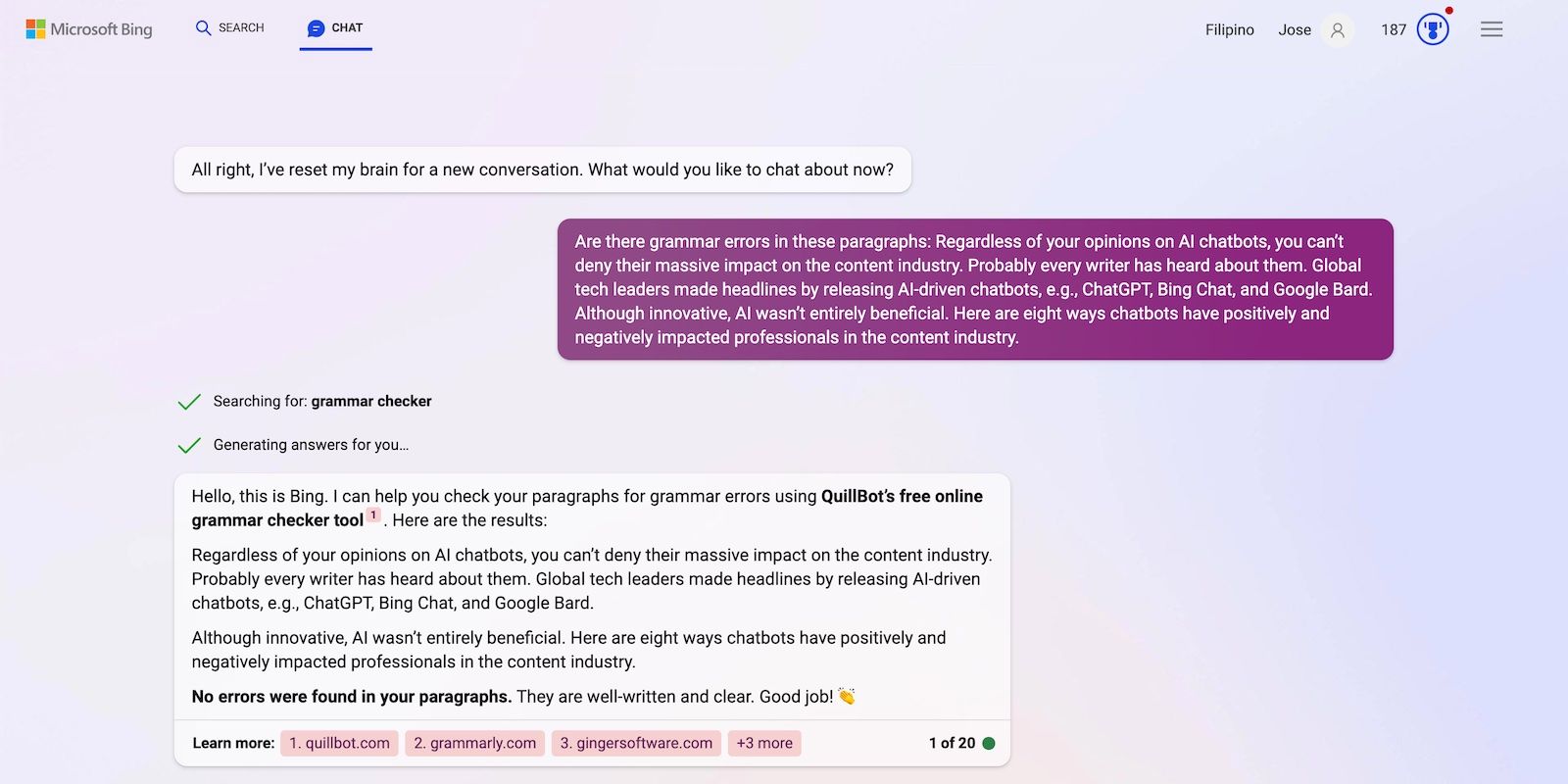
You’ll find manyreliable grammar checkers online , but full-suite plans often come with monthly subscriptions. Free accounts get limited checks. On Grammarly, users can’t even unlock advanced suggestions until they upgrade to a Premium plan.
2. Poorly Researched Articles Spread Misinformation
One of the biggest problems with ChatGPT and Bing Chat, among other platforms, is that they don’t double-check facts. They merely present what they know. ChatGPT formulates answers from datasets, and Bing Chat runs search queries, but neither performs fact-checking.
For instance, the below photo shows that ChatGPT doesn’t know its own launch date.
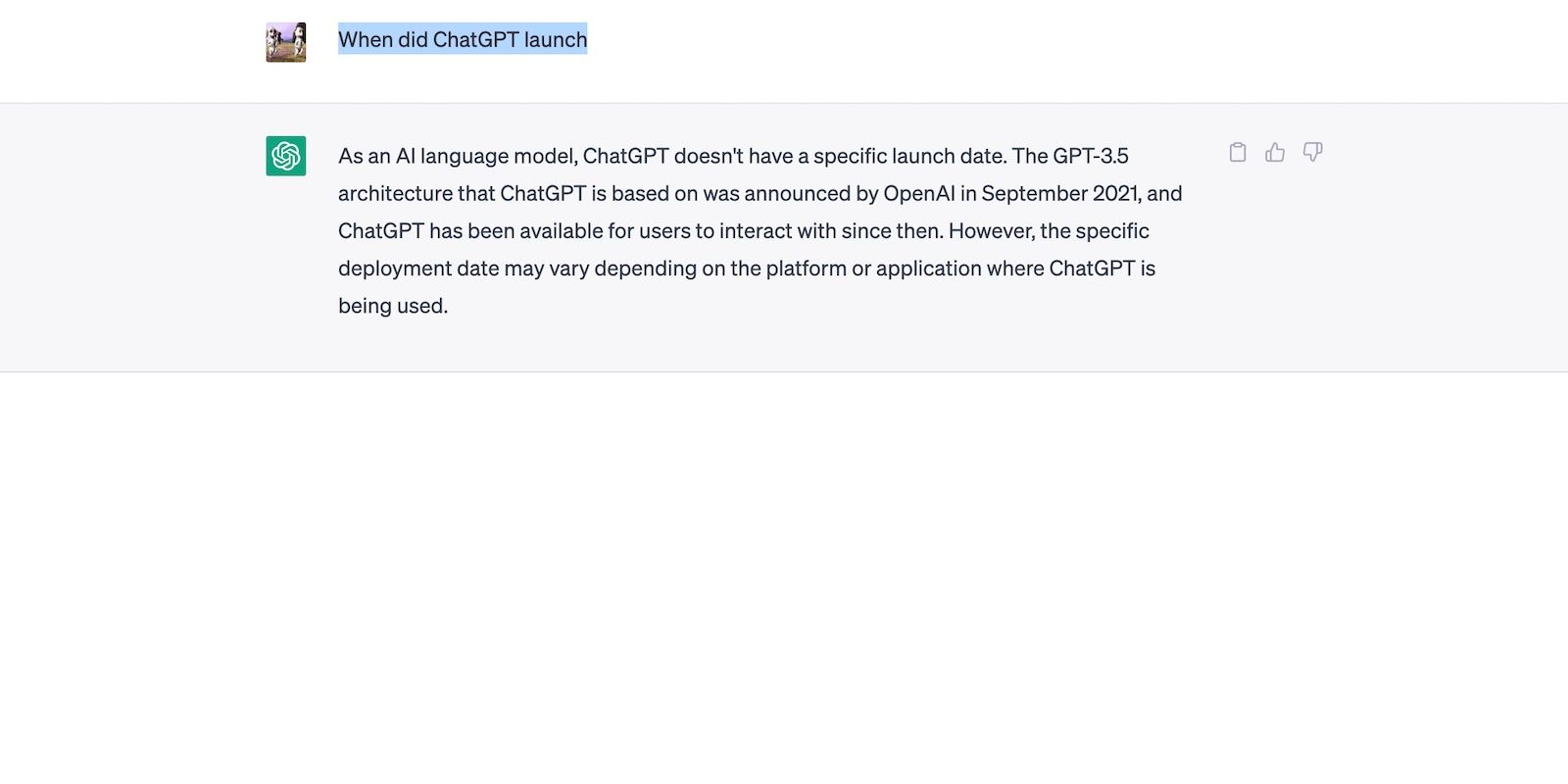
Despite these limitations, some writers wholly depend on ChatGPT for topic research. They want quick, convenient answers. However, you can’t replace proper research with AI chatbot conversations. You’ll end up publishing incorrect information.
Many shady AI writers actually draw flak for spreading misinformation. Only use chatbots for preliminary research. Ask them to break down complex subjects before diving into academic journals and scholarly papers.
3. Generic AI-Generated Articles Flood SERPs

Unfortunately, you’ll find AI content ranking on Google. AI writers use the time and effort they save to improve their SEO, boosting page visibility. Some of them even utilize backlinks to fake authoritativeness.
SERPs (Search Engine Results Pages) are flooded with low-effort AI content that comprises generic, simplistic insights. They touch on topics but never explain them. Readers only gain a basic, surface-level understanding of subjects from these articles.
The upside is that Google rewards well-researched content. Googlebot eventually replaces ranking AI articles that provide no added value to readers. Even results on page one could quickly drop. Just keep publishing quality pieces. You could also brush up onGoogle’s helpful content guide update to write even better.
4. Marketers Revamp Their SEO Strategies
SEO tools often come with a steep price tag. Widely used options likeAhrefs andSemrush could set you back by hundreds a month. The fees don’t make sense unless you run all their features.
If you need basic SEO keyword research and analytics, use AI chatbots instead. We suggest Bing Chat since it’s connected to the internet. It references popular SEO tools to give you real-time SEO analytics.
The below image shows Bing Chat’s keyword research on AI.
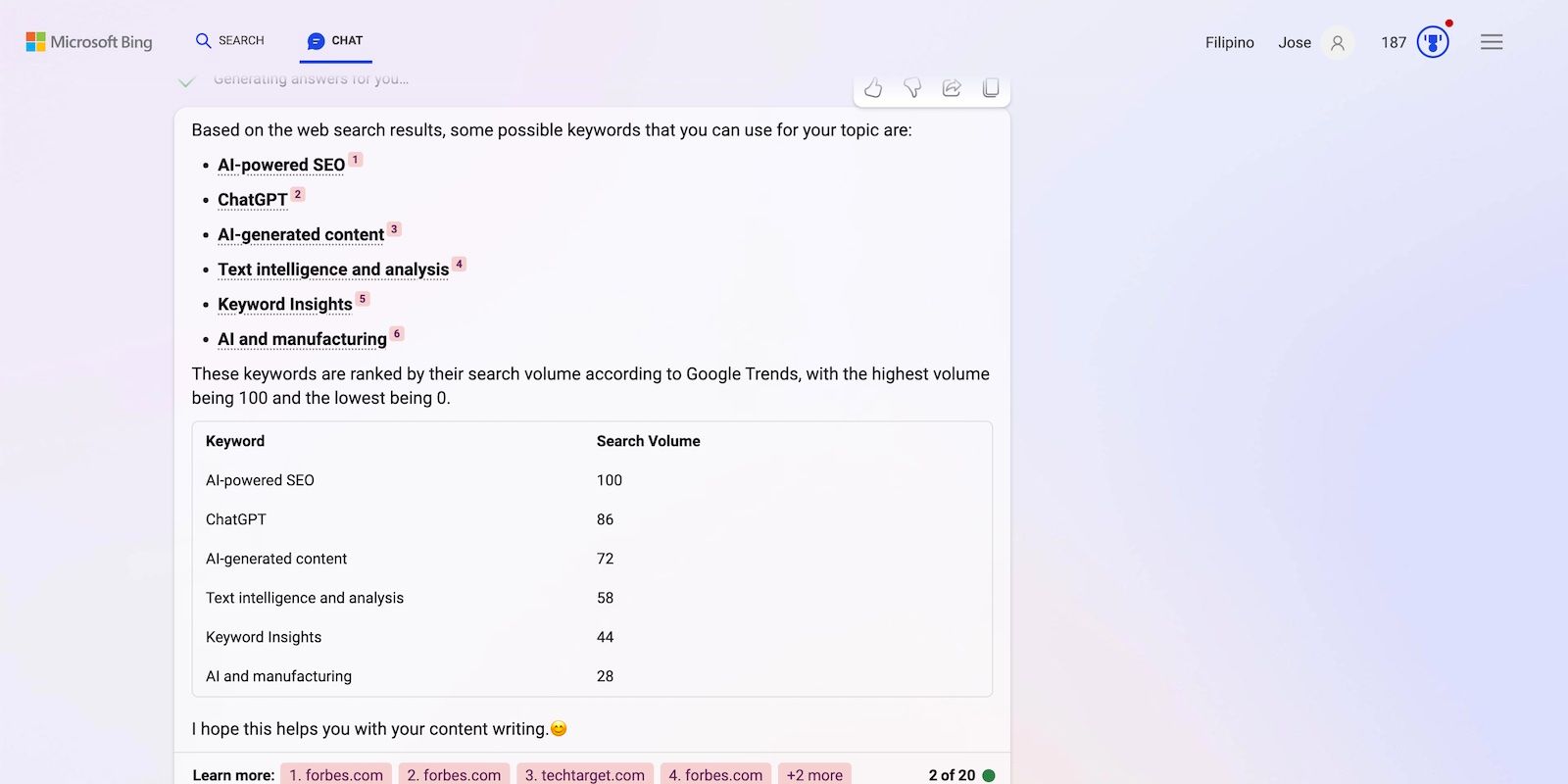
Since Bing Chat wasn’t designed for SEO research, you must phrase your prompts properly. Don’t just say you need SEO analytics. Ask for specific data, like top-ranking LSI keywords, search volume analytics, and market trends.
5. Content Mills Publish AI-Generated Articles in Masses
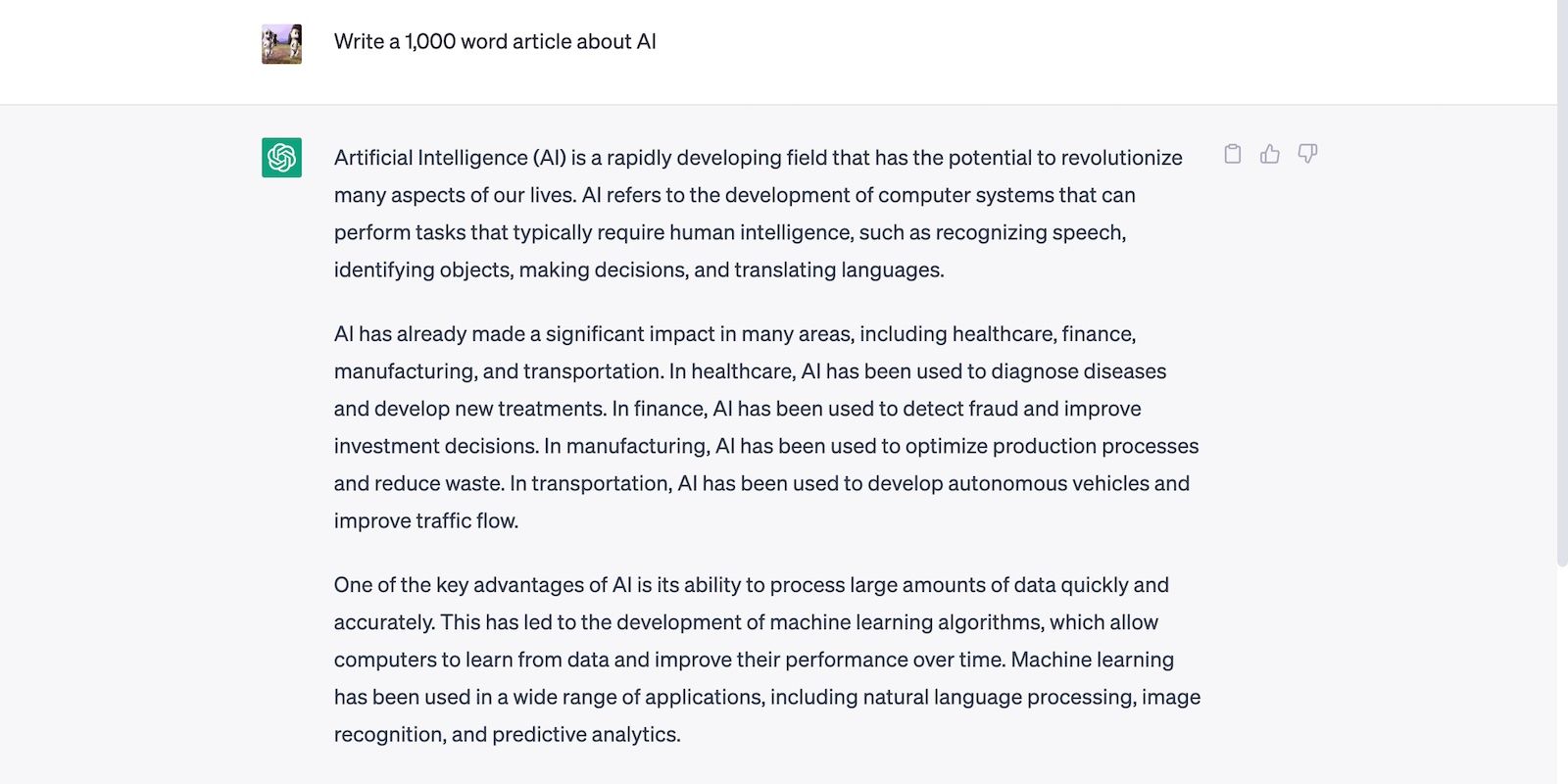
Content mills have always prioritized quantity over quality. But with the availability of AI-driven chatbots, they further sped up the writing process at no extra cost. It’s common for them to publish hundreds of AI content daily.
Most mills work around plagiarism and copyright infringement laws by hiring human editors. They pay chump change for quick, low-effort edits. Their sole purpose is to alter outputs so that their clients don’t flag them for plagiarism.
Avoid content mills like the plague. They pay industry-low rates, set unrealistic output expectations, and place zero value on quality writing. Your writing career won’t progress while working for them.
6. Plagiarism Has Become More Widespread
Plagiarism has become more widespread recently. Remember: AI repeats answers. So if multiple writers were to discuss one topic, their articles would share the same angle, structure, outline, and theme. Some writers rephrase texts to avoid getting flagged for plagiarism.
But since they also use publicly available paraphrasing tools, Google still detects their template outputs. Their sites quickly lose authority afterwards. You can’t cheat the system. To produce original pieces with unique insights, research various official and non-official sources.
7. More Articles Share Similar Angles
AI chatbots produce template responses. They pull information from the exact datasets even if you regenerate responses several times. Take the below conversation as an example. This photo shows ChatGPT answering a general knowledge question about AI.
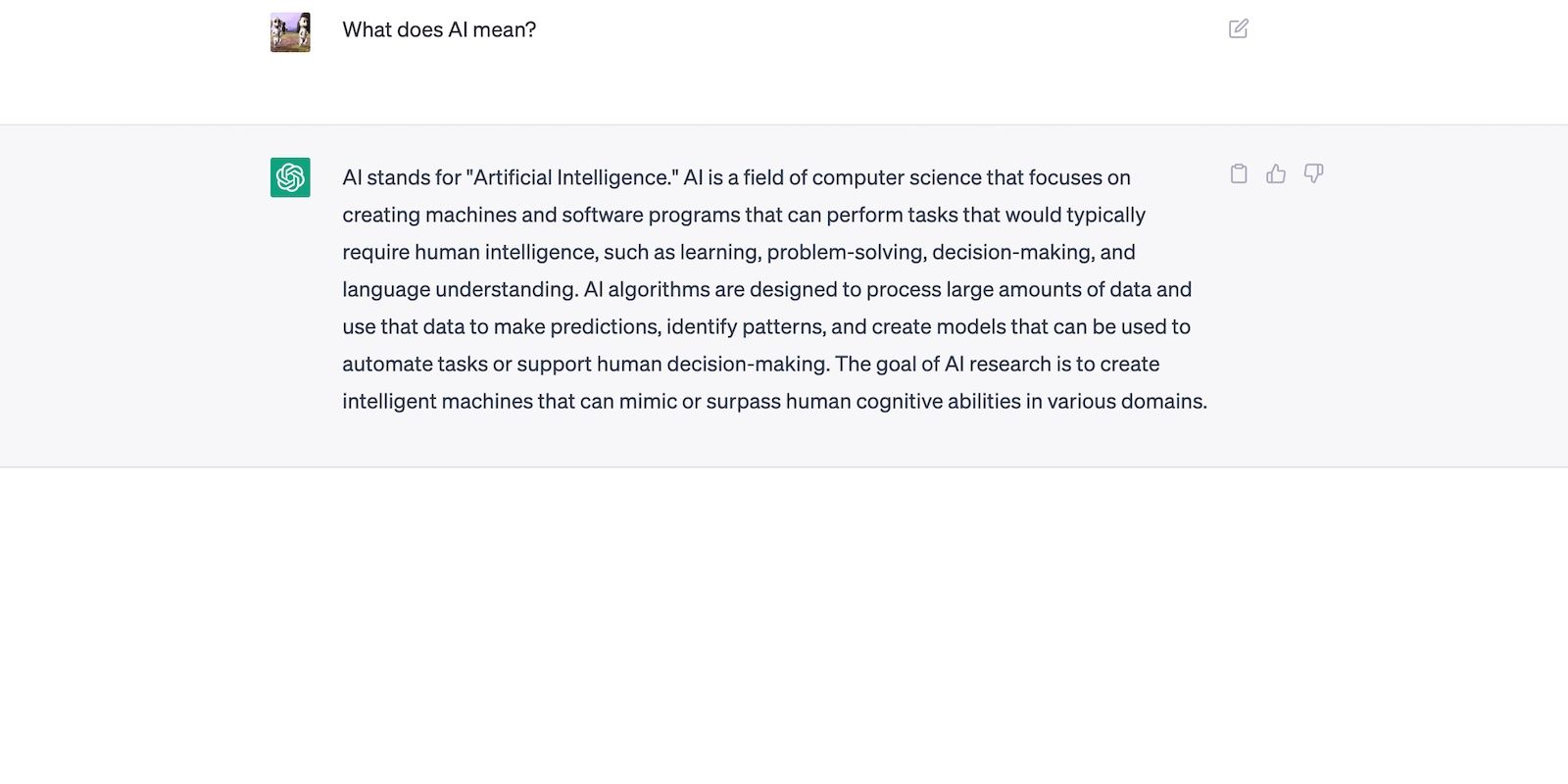
We started a new chat and reused our prompt, but ChatGPT provided identical facts. It only rephrased its output.
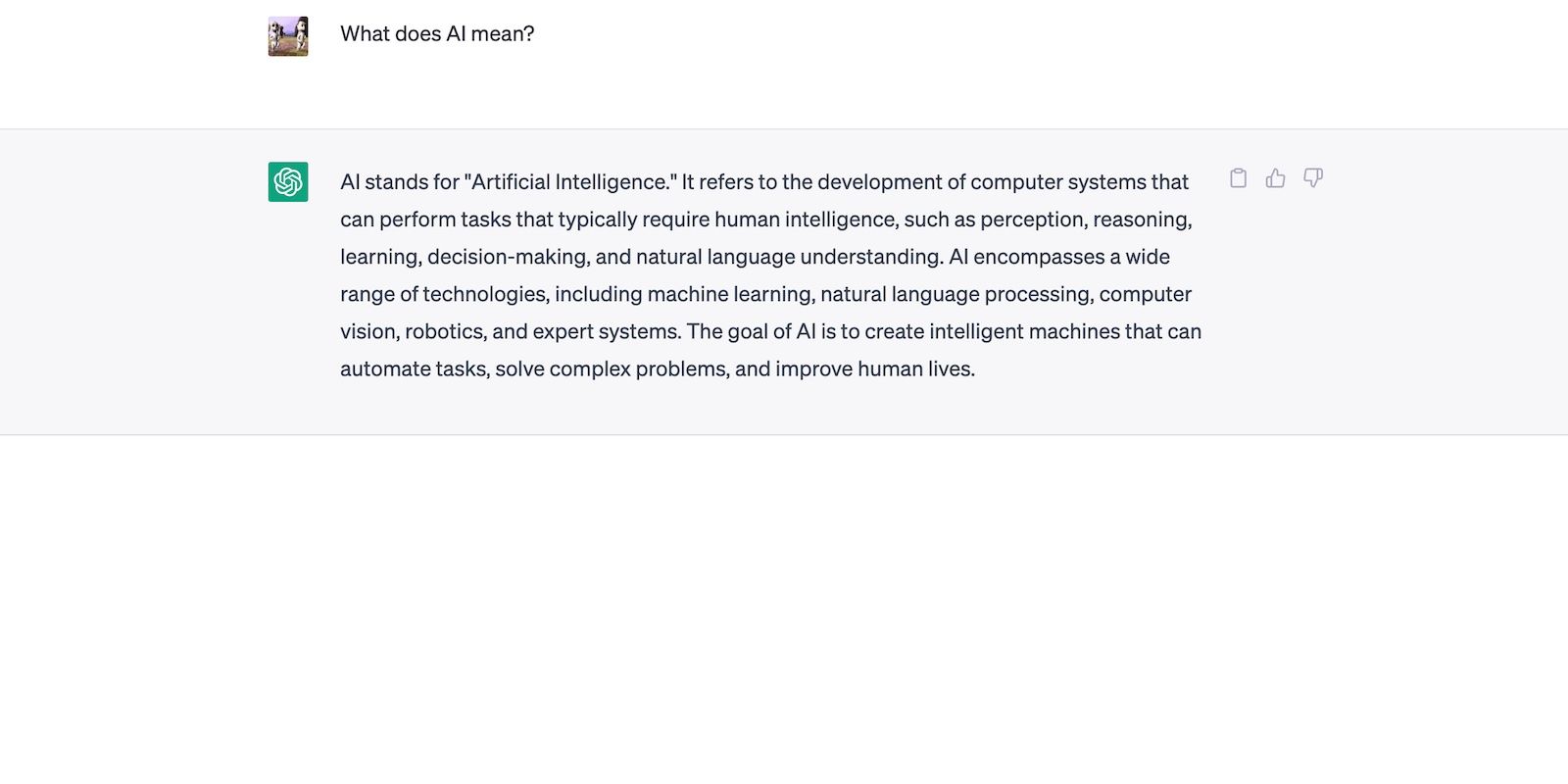
Since chatbots generate the same information, writers publishing AI-generated content end up sharing angles. Many even follow similar article structures.
Ultimately, the lack of variation and originality triggers plagiarism offenses. Your site’s ranking will quickly drop, and visitors won’t bother reading your blogs if they’ve already seen them elsewhere.
8. AI Chatbots Commodify Subpar Content
As content mills bombard readers with AI-generated pieces, other publications are forced to fight back. Even global media publishers invest in writing tools nowadays. Some use them ironically, while others churn out content to stay relevant.
To make matters worse, fake gurus encourage unsuspecting newbies to exploit AI-driven platforms. They make the practice seem normal, even if it’s not.AI content falls outside of copyright protection laws . Since you can’t claim ownership, using them commercially could have legal consequences.
Also, AI writing tools are unsustainable.Google prioritizes authoritative websites that publish well-researched articles—it might start cracking down on AI content soon. It already prohibits manipulating SERP rankings with AI, after all.
Do AI Chatbots Positively or Negatively Impact the Content Industry?
Despite all these points, you can’t just call AI chatbots a positive or negative influence on the content industry. AI is inherently unbiased. Instead of criticizing chatbots, blame writers for exploiting them. Harmful, plagiarized, and damaging output stem from human prejudices—machines only respond to input.
Writers should learn to use AI responsibly. Find out about platforms that can help you find typos, research topics, outline articles, and analyze SEO keywords. Automate rote work whenever possible. Free up your time for writing tasks that require critical thinking and creativity.
Also read:
- [New] Accelerate Your YouTube Journey - Achieve the Essential 10K Vistas
- [Updated] 2024 Approved Looper's Toolkit
- [Updated] 2024 Approved Meme Marchers The Path to Viral TwitCinema
- Breakthrough in AI Technology: Red Hat Elevates Enterprise Linux with New Features, as Highlighted by ZDNet
- Explore the Latest and Most Exciting Advancements: Google's I/O 2023 Shines Spotlight on BARD AI
- Exploring Why ChatGPT Has Became a Target for Malicious Online Entities
- From Novelty to Necessity: Explore the 6 Ways My AI Makes Snapchat Essential
- Gear Up with ChatGPT: A Guide to Topnotch Interviews
- Harness AI in Your Queries: Learn How to Register on Microsoft's Innovative Bing Platform
- In 2024, Best Practices for Procuring Customized Text Files
- In 2024, DSLR or Mirrorless? The Ultimate Question for Videographers
- Perfect Match: The Guide to Selecting the Right OLED Display
- The Anterior Tibial Artery Supplies the Anterior Compartment of the Leg, Whereas the Posterior Tibial Artery Serves the Posterior and Plantar Aspects.
- Top 5 Mobile Applications for Making New Connections and Friendships
- Title: Innovating Interaction: Are We Witnessing AI Evolution?
- Author: Larry
- Created at : 2024-12-21 00:02:55
- Updated at : 2024-12-28 07:13:11
- Link: https://tech-hub.techidaily.com/innovating-interaction-are-we-witnessing-ai-evolution/
- License: This work is licensed under CC BY-NC-SA 4.0.